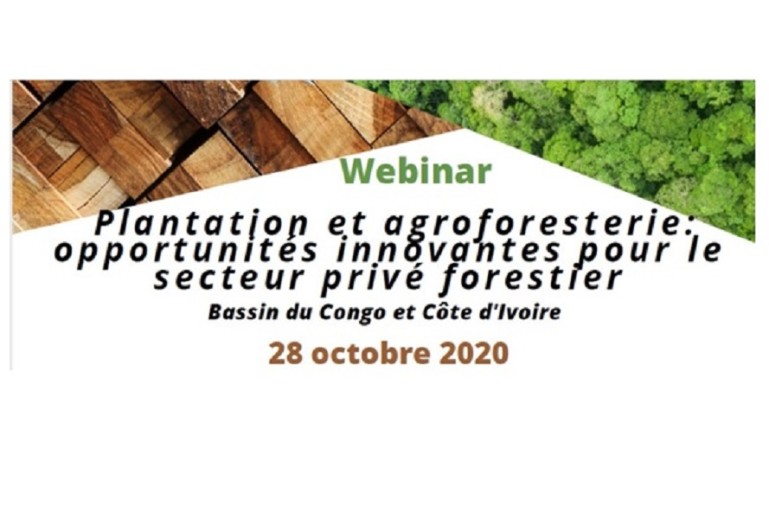Link(s) :


05.11.2020
In order to maintain forest potential, both in quantity and quality, it is increasingly essential, especially in some countries where population pressure is intense, to combine natural regeneration with silvicultural methods involving the planting of trees, giving priority to local species of high heritage value.

On October 28th, 2020, many of you joined us for this webinar : a maximum of 76 attendees were connected at the same time and about 95 people in total, including all the participants who were connected at one time or another during the day. A big thank you to all of you for your participation !
The day began with an introduction of the reflections through the context of the project implemented by ATIBT and financed by FFEM, as well as the presentation of the discussion group of the Cité du Développement Durable du jardin d'agronomie tropicale.
All support in French
- See the presentation of the FGEF
This was followed by the agroforestry section with 4 presentations :
- Cocoa under shade study 2018 - Yohann Fare
- Orientation for forest companies 2020 - Elsa Sanial
- Structuring of a cocoa sector on the periphery of FMUs in Cameroon - Jérôme Laporte
- Agroforestry Reforestation in Côte d'Ivoire - Songuilème Silué
The last section focuses more specifically on timber plantation while taking into account the notions of agroforestry through 5 presentations:
- Timber plantation in Côte d'Ivoire study 2018 - Jean François Chevalier
- Legality and regulations for timber plantations - Study 2018 - Benoît Demarquez
- Orientation for forest companies 2020 - Anaïs Denardou and Romain Pirard
- Planting in degraded areas on the outskirts of Kisangani in the DRC - Cécile Lubwilu
The challenge today is to have inclusive projects that meet the needs of (I) populations, (II) the environment and (III) the economic needs of companies and countries. The technical and economic feasibility of such projects is at stake, hence the importance today of moving towards complex (and multi-product) projects. Partnerships between all the actors of the territory, whether private-private, private-public, private-population or multi-actors, are essential and take several possible forms. During this webinar, we saw several avenues that still need to be explored.
The studies carried out between 2018 and today with the support of ATIB provide a first basis for discussion. This provides the first bases for future reflection. The ATIBT wishes to continue to bring these subjects and the concerns arising from them to the forefront and encourages its members to consult each other and to propose initiatives in the continuity of its initial discussions.
Link(s) :